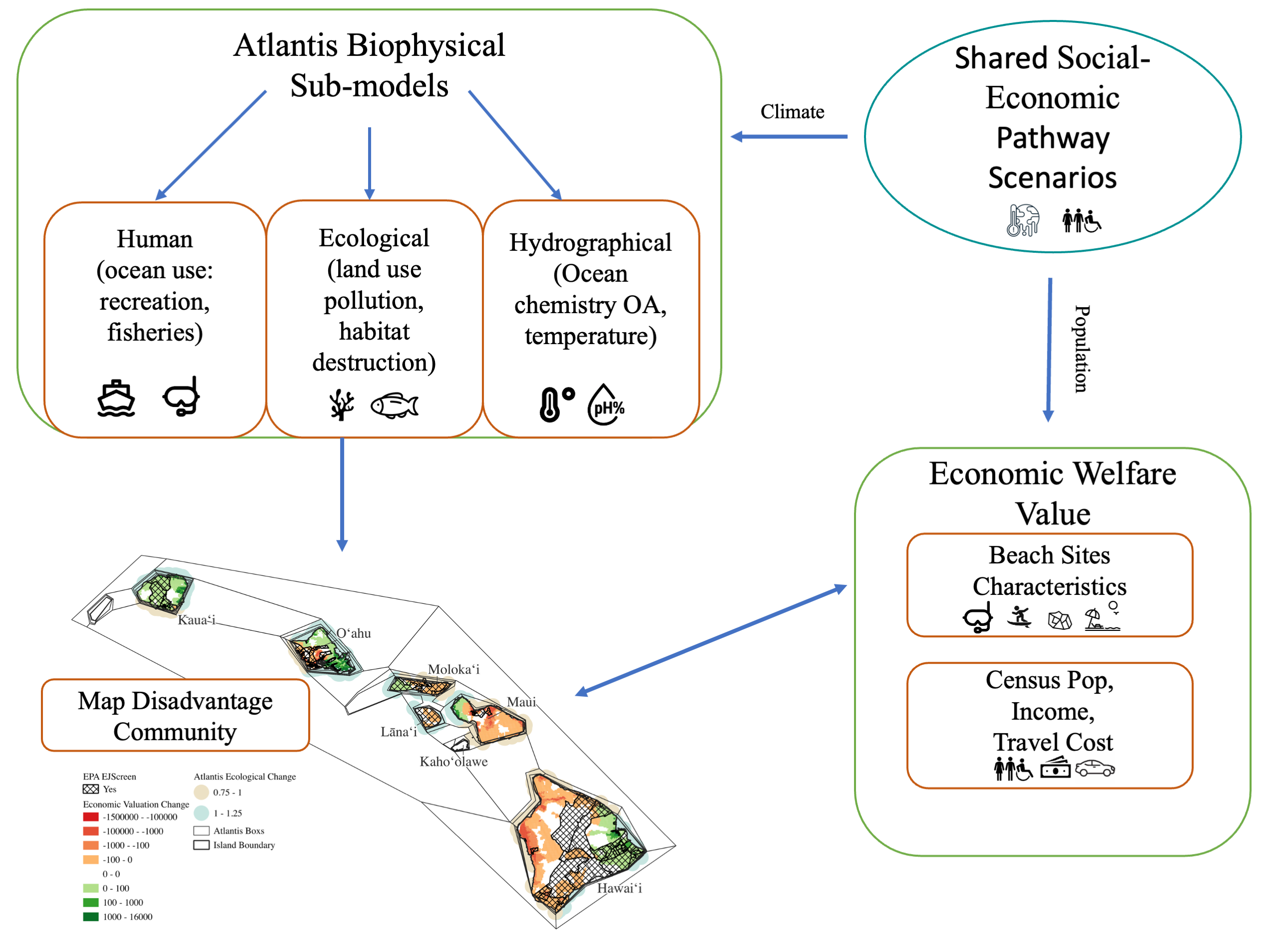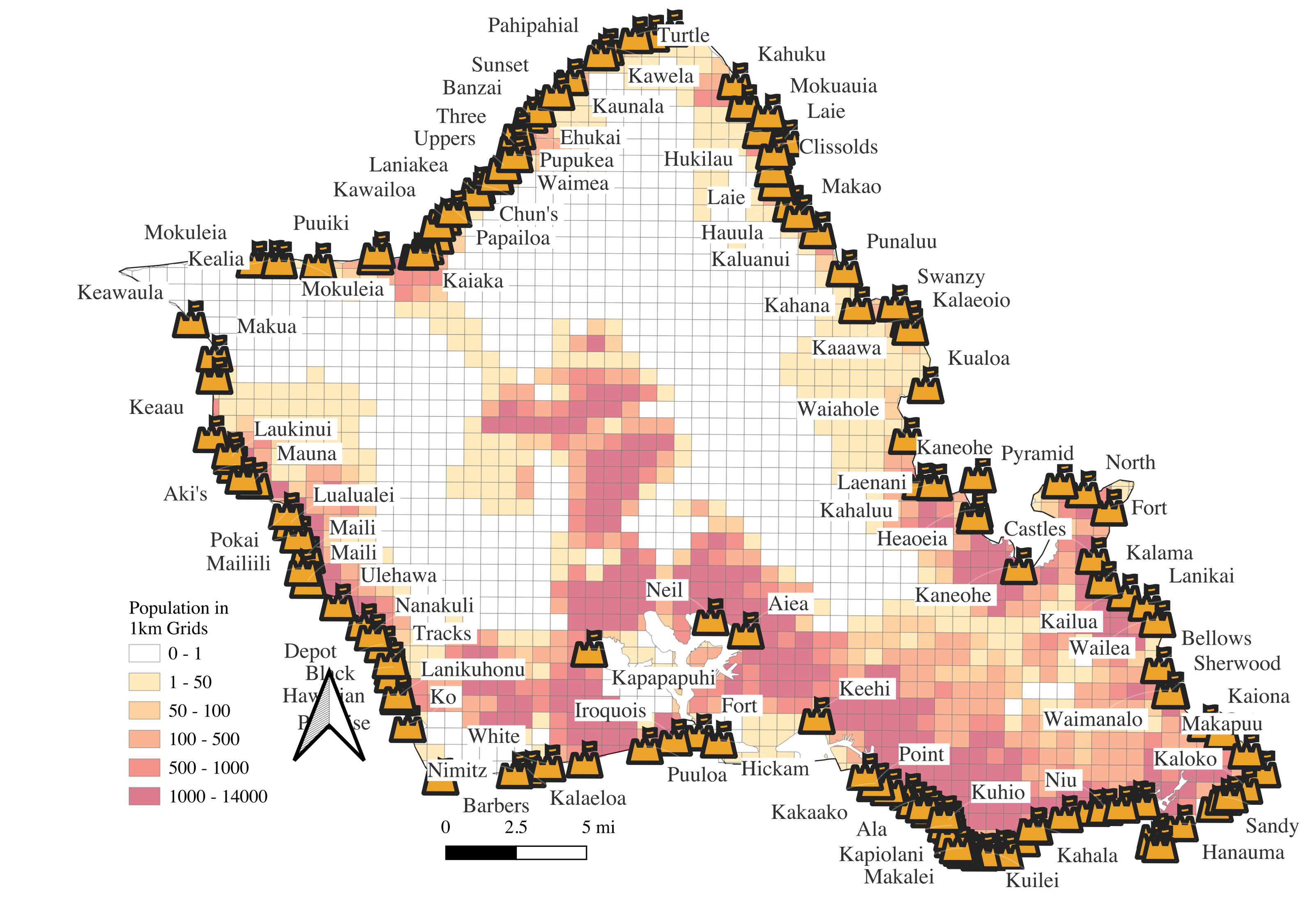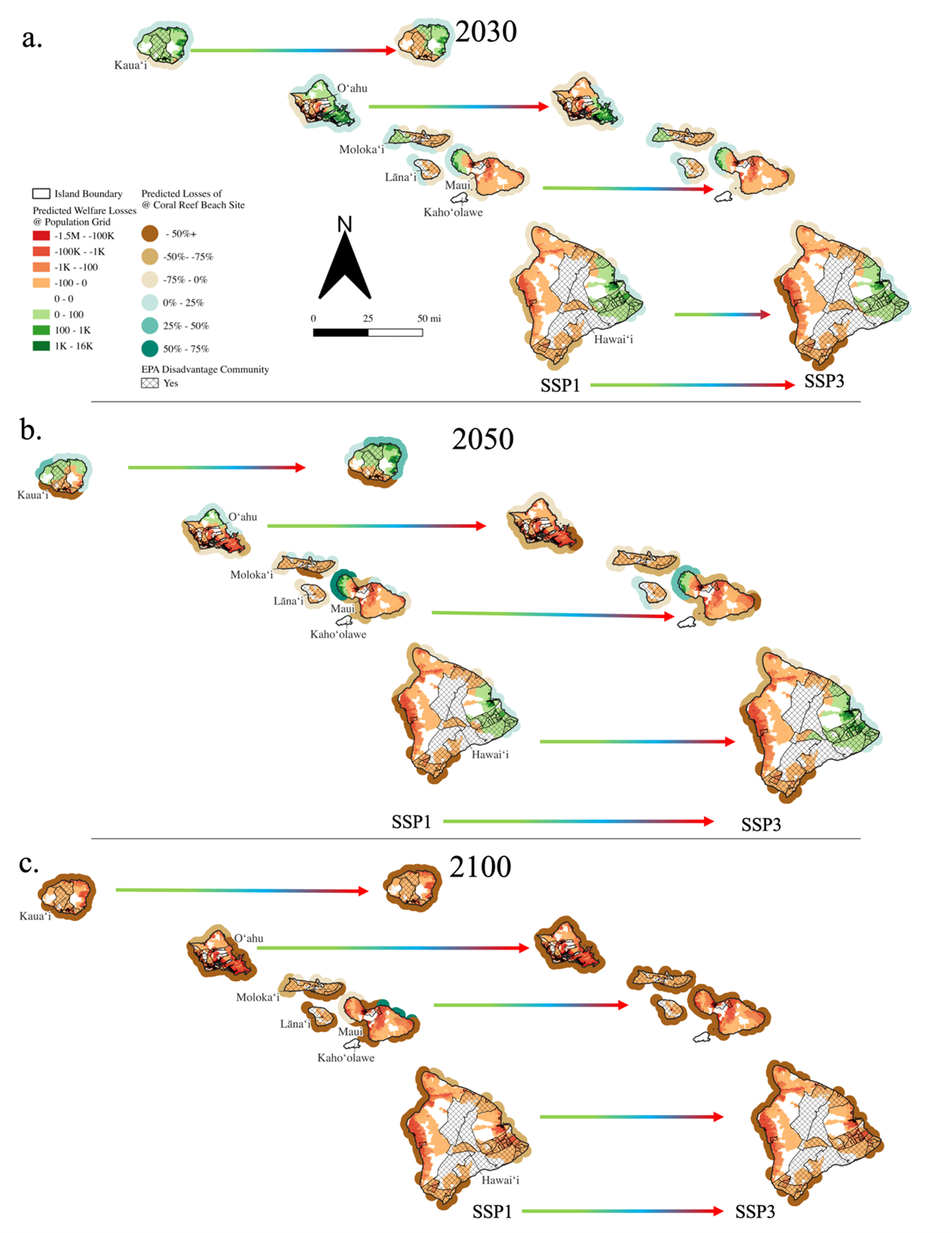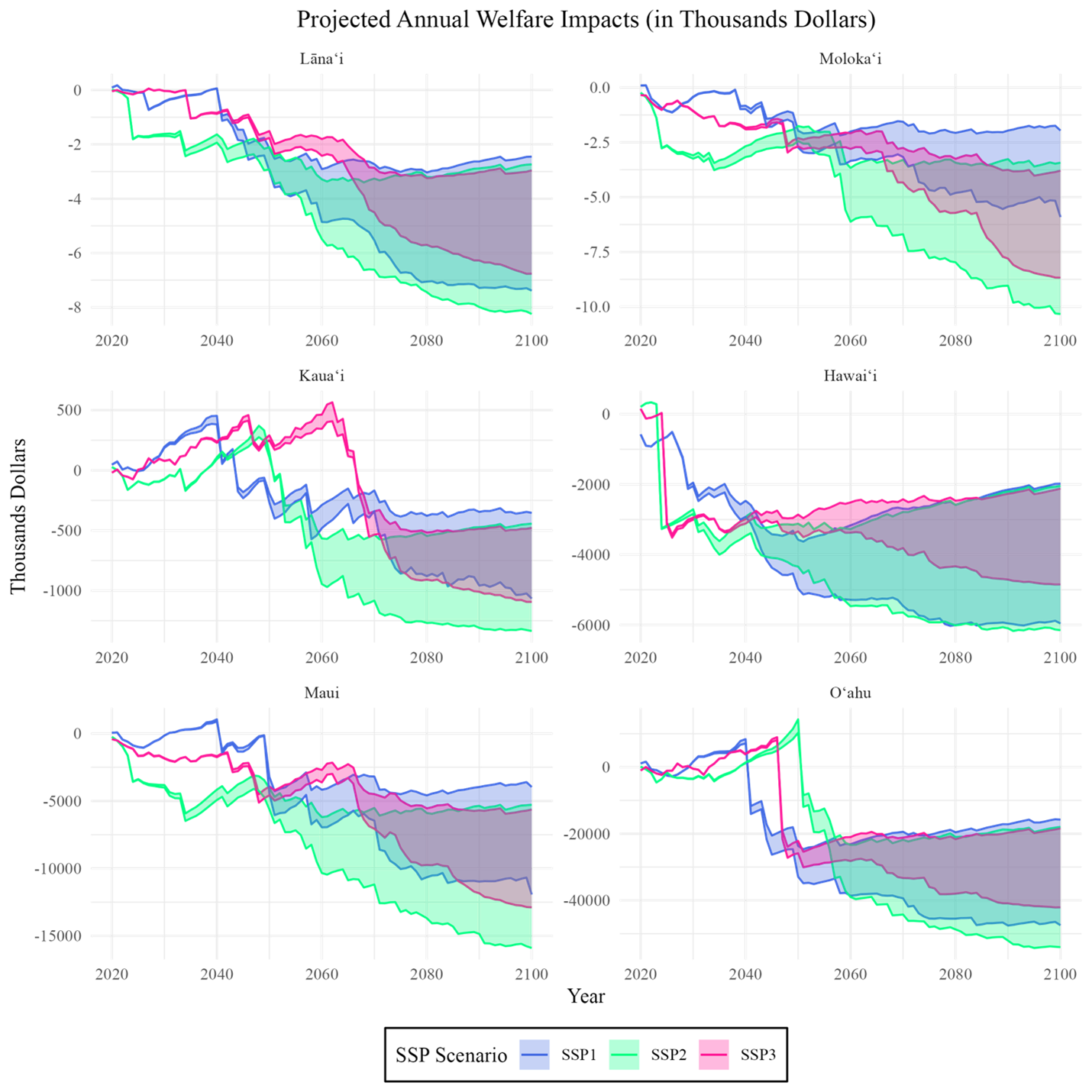Economic Impact
The Economic Impact of Climate Change on
Coral Reefs in the Main Hawaiian Islands
Ashley Lowe Mackenzie, Anders Dugstad, Lansing Perng, Carlo Fezzi, Kirsten L.L. Oleson

Projections of coral reef decline under climate change have major implications for the well-being of communities across the MHI, especially considering the central role reefs play in supporting coastal recreation, food security, and local economies. We developed a spatially explicit framework that links ecological projections from the Atlantis model with an economic valuation of changes in recreational reef use across the MHI to quantify these impacts.
Our approach integrates several data sources and methods. First, we paired site-specific projections of future coral cover with detailed information on coastal access sites, recreational amenities, and state-level population forecasts under each climate scenario. We then estimated changes in the welfare value of recreation using a parameterized model derived from a travel cost study of Maui residents, accounting for site amenities, ecological conditions and resident income. This allowed us to estimate both annual and cumulative welfare losses for residents under the three climate scenarios.


Our results show that climate-driven reef loss is projected to lead to substantial reductions in recreational value across the MHI. The greatest potential welfare loss occurs under scenarios with higher population growth. By the end of the century, cumulative losses are projected at $2.1–3.3 billion, with impacts unevenly distributed across islands and communities.
Important uncertainties include the exclusion of tourism values, reliance on model assumptions, and future policy shifts. Although our framework transparently maps vulnerabilities, refining valuation methods and expanding ecosystem service metrics will strengthen future analyses.

Our analysis reveals the economic stakes of climate-driven coral reef decline, highlights spatial disparities, and underscores the need for policies that balance ecological resilience with social equity. Future work should refine valuation approaches and explore adaptation strategies.